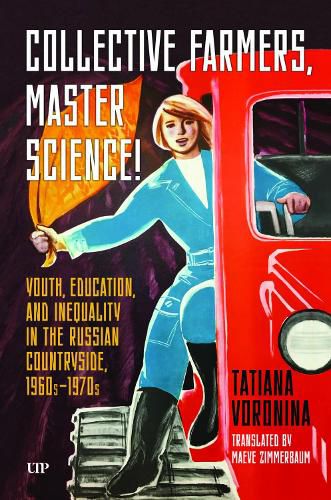Readings Newsletter
Become a Readings Member to make your shopping experience even easier.
Sign in or sign up for free!
You’re not far away from qualifying for FREE standard shipping within Australia
You’ve qualified for FREE standard shipping within Australia
The cart is loading…






Soviet authorities had long aimed to create a classless society and eliminate the differences between the city and the countryside. Collective Farmers, Master Science! describes the Russian peasantry's transformation and ultimate extinction through the young people who became immersed in a new Soviet education system. In the process, they adopted the attitudes of Soviet modernity and abandoned the long-standing social patterns of their class. Memory studies and Soviet sociocultural scholar Tatiana Voronina argues that inequality was created by Soviet educational institutions. This book describes how Soviet modernity was conceptualized and implemented by focusing on the work of the rural Komsomol, rural schools, and an agricultural university. The book is written as a micro-history of three distinct rural communities in the Vologda region. It is based on rich archival material from central and regional archives of Russia and oral history interviews with former members of the region's rural youth. illuminates the intricacy and diversity of the Soviet modernization processes that took place in the Russian provinces during the 1960s and 1970s.
$9.00 standard shipping within Australia
FREE standard shipping within Australia for orders over $100.00
Express & International shipping calculated at checkout
Soviet authorities had long aimed to create a classless society and eliminate the differences between the city and the countryside. Collective Farmers, Master Science! describes the Russian peasantry's transformation and ultimate extinction through the young people who became immersed in a new Soviet education system. In the process, they adopted the attitudes of Soviet modernity and abandoned the long-standing social patterns of their class. Memory studies and Soviet sociocultural scholar Tatiana Voronina argues that inequality was created by Soviet educational institutions. This book describes how Soviet modernity was conceptualized and implemented by focusing on the work of the rural Komsomol, rural schools, and an agricultural university. The book is written as a micro-history of three distinct rural communities in the Vologda region. It is based on rich archival material from central and regional archives of Russia and oral history interviews with former members of the region's rural youth. illuminates the intricacy and diversity of the Soviet modernization processes that took place in the Russian provinces during the 1960s and 1970s.